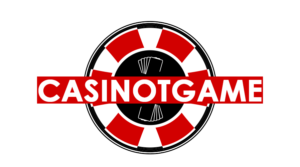Winning at a casino in the United States brings a rush of excitement, but many Canadian visitors soon realize that the joy is tempered by a hefty tax deduction. When winnings are paid out, U.S. casinos are required to withhold 30% in taxes for non-U.S. residents. While this deduction is mandatory, the good news is that much of it can be recovered. Understanding how to manage Canada lottery taxation services and the refund process can make the difference between losing a significant share of your winnings and reclaiming what is rightfully yours.
Why Tax Recovery Matters for Canadian Winners
Every year, thousands of Canadians head to U.S. casinos, and many return with both winnings and questions about taxes. The U.S. Internal Revenue Service (IRS) enforces withholding taxes on gambling wins, but under specific agreements and tax treaties, Canadians are often eligible to claim back a large portion of what was deducted.
Without proper knowledge, many players leave this money unclaimed, assuming the process is too complicated or not worth the effort. However, the potential refunds can be substantial, especially for those who win big.
Understanding the Basics of US Gambling Tax Recovery
To begin, it’s important to recognize how withholding works. A casino in the United States will immediately deduct 30% of your winnings if you are not a U.S. resident. These funds are sent directly to the IRS. For Canadians, the U.S.–Canada Tax Treaty provides a legal pathway to reclaim some or all of this money through a tax refund application.
The recovery process typically involves completing specific IRS forms, attaching proof of your winnings and withholdings, and submitting the documents within the required timeframe. Canadians generally have up to three years from the date of their win to file for a refund. Missing this deadline means forfeiting the chance to recover withheld funds.
Key Tips for Maximizing Your Refund
1. Keep Accurate Documentation
The casino will provide you with a tax form that outlines the amount withheld from your winnings. Safeguard this form, as it is the primary proof needed to file your refund claim. Without it, your application may be delayed or denied.
2. Understand Eligibility Criteria
Not every case qualifies for a full refund. The amount you can recover depends on the specifics of your winnings, whether they were from slot machines, poker, or lottery-related events. Some may be eligible for complete recovery, while others may only qualify for a partial refund.
3. File Early to Avoid Delays
While you technically have three years to submit your claim, filing sooner can help you get your money back faster. The IRS process is known to take several months, so acting quickly reduces the waiting time and minimizes the risk of misplacing important documents.
4. Seek Professional Help When Needed
The paperwork, treaty details, and IRS requirements can be overwhelming. Working with professionals experienced in gambling tax refund Canada ensures that your application is error-free and handled efficiently. This guidance often leads to higher success rates in obtaining refunds.
Common Misconceptions About Tax Recovery
One of the biggest myths is that the withheld tax is “gone forever.” In reality, most Canadian winners qualify for at least a partial refund, depending on the nature of their winnings. Another common misconception is that the process is too complicated to pursue. While it does involve documentation and IRS compliance, professional services can streamline the entire experience.
Conclusion: Recover Your Rightful Winnings
Navigating the complexities of U.S. gambling tax recovery doesn’t need to feel overwhelming. By keeping accurate records, filing on time, and seeking guidance when necessary, Canadian winners can maximize their chances of reclaiming withheld funds. For those seeking trusted assistance, US Tax Recovery specializes in helping Canadians and other international visitors recover taxes on their casino winnings. With expert support, you can enjoy the thrill of your win without losing a significant portion to unnecessary tax deductions.

